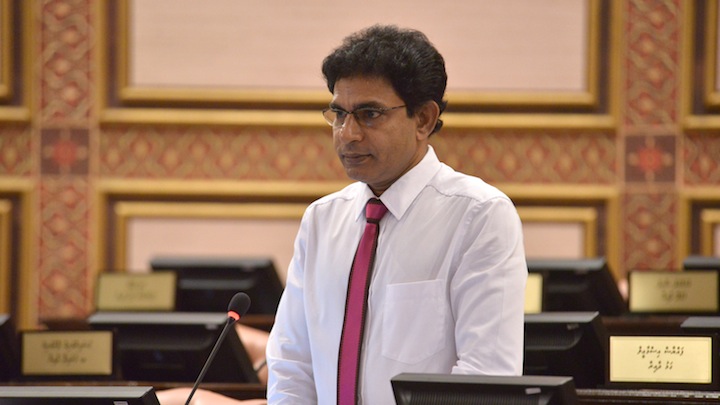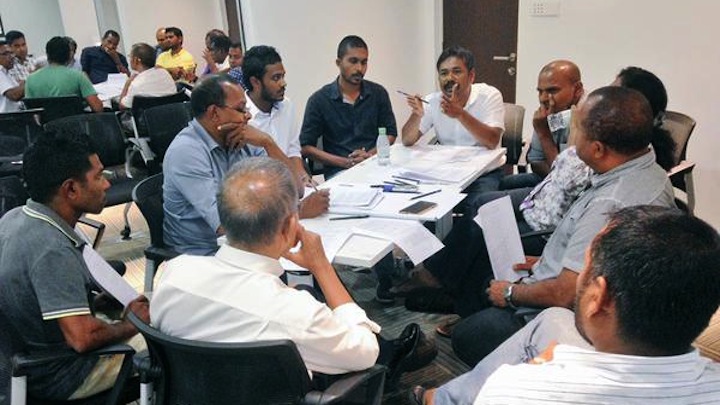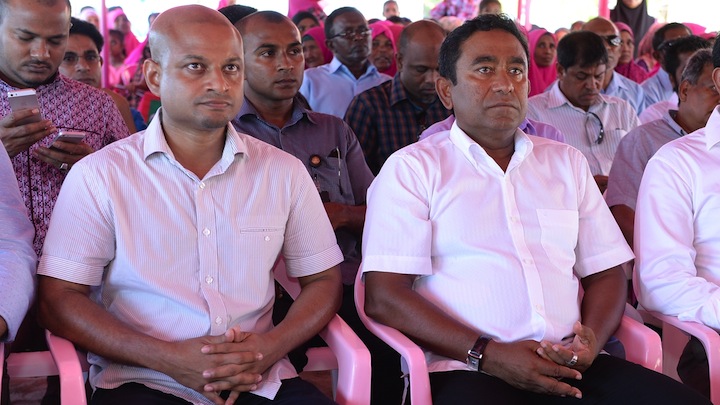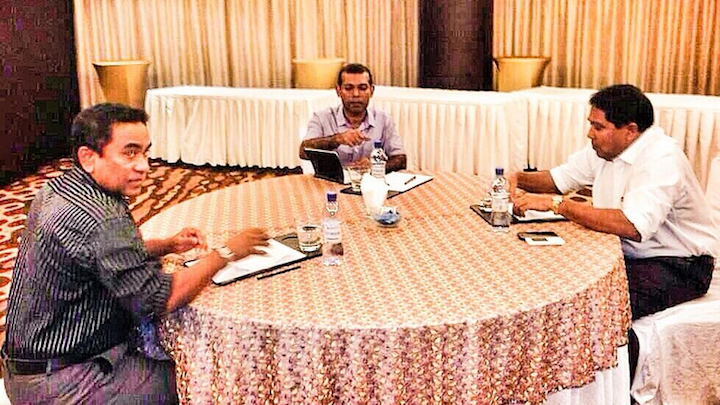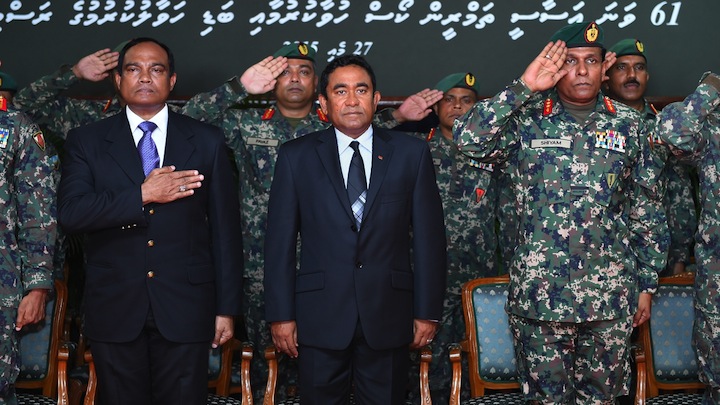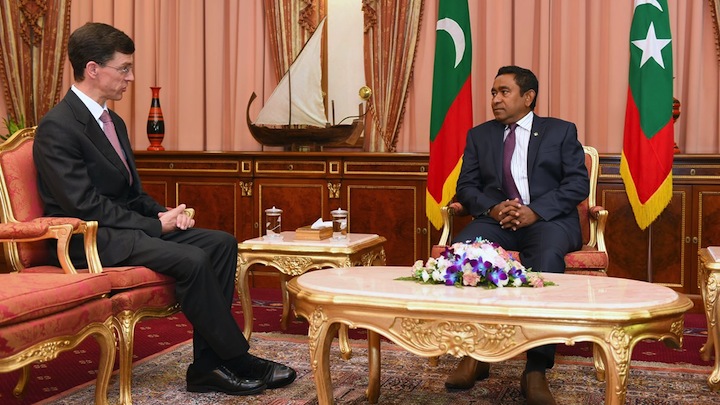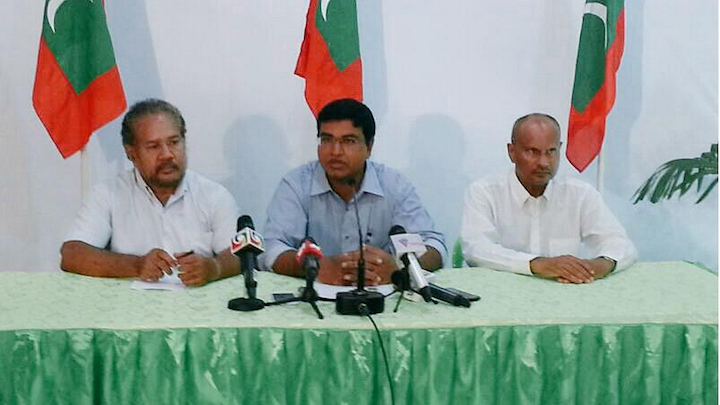President Abdulla Yameen has pledged to write off fines accumulated for traffic violations and illegal parking.
Speaking at a function with youth supporters last night, Yameen observed that the fines for some motorcycles impounded at the tow yard has reached up to MVR80,000 (US$5,188), which most youth were unable to afford.
“We have submitted a bill to the People’s Majlis to write off debt or arrears built up like this. So from the day this bill passes, those youth will no longer be in debt,” he declared to loud cheers.
Yameen said the pro-government majority will pass amendments to the land transportation law before Ramadan or during the current session of parliament.
MP Ahmed Nihan, parliamentary group leader of the Progressive Party of Maldives (PPM), had revealed last month that President Yameen was considering writing off traffic fines.
The capital does not have the parking capacity for the increasing number of motorcycles, Nihan said, and many young people owed money to the state as fines for illegal parking.
According to a 2011 report by the Environment Protection Agency, one in six residents of the capital own a motorcycle.
The president made the pledge during a “meeting with youth” at the carnival area of Malé. President’s office spokesperson Ibrahim Muaz Ali told Minivan News yesterday that the event was arranged for the president to share information about his youth-related programmes “and for the youth to share their views straight with the president.”
Yameen’s 2013 presidential campaign had focused heavily on youth empowerment with pledges to create 94,000 jobs and build futsal pitches and sports arenas across the country.
The opposition has, however, accused the government of failing to fulfil its pledges, imprisoning opposition leaders to pave the way for autocratic rule, and maintaining illicit connections with criminal gangs. The government denies the allegations.
“Greener pastures”
In his speech last night, Yameen said youth were “neglected,” used as “weapons” by politicians, and had fallen prey to drug abuse before he assumed office in November 2013.
The current administration was elected with the support of youth, he continued, who voted for housing, jobs, and sports facilities.
Yameen urged young people in remote islands to migrate to the reclaimed island of Hulhumalé, which the government is planning to develop as a ‘Youth City’ with the capacity of housing three-fourths of the country’s population.
Youth must abandon small islands that lack economic prospects or job opportunities, he advised, and move to “greener pastures.”
If 85 percent of the government’s targeted 94,000 jobs are filled by youth, Yameen said they would be able to afford rent or mortgage payments for the new housing units to be built in Hulhumalé.
He vowed that construction on the Malé-Hulhulé bridge will begin this year.
“Then even [opposition Maldivian Democratic Party supporters] will also go for rides on the dream bridge between Malé and Hulhumalé,” he said.
Plans for youth empowerment include the ‘Get Set’ youth entrepreneurship programme and “integrated tourism” projects aimed for small and medium-sized businesses, he said.
Yameen said young entrepreneurs who were previously excluded from the lucrative tourism industry due to high barriers of entry will be able to invest in one component of the ‘guesthouse island projects,’ such as water sports or restaurants.
The government is also planning to privatise rehabilitation centres as part of its efforts to “redeem” drug addicted youth.
Yameen urged youth to “say no” to those who encouraged them to commit crimes.
Maldivian youth is the “dynamo of the engine of the Maldivian state” and the “development partners” of the current administration, Yameen said.
“If you want to want to carry this partnership forward, the basis of the bond or contract that is established is sincerity. Both sides must fulfil what they agree to do,” he said.


